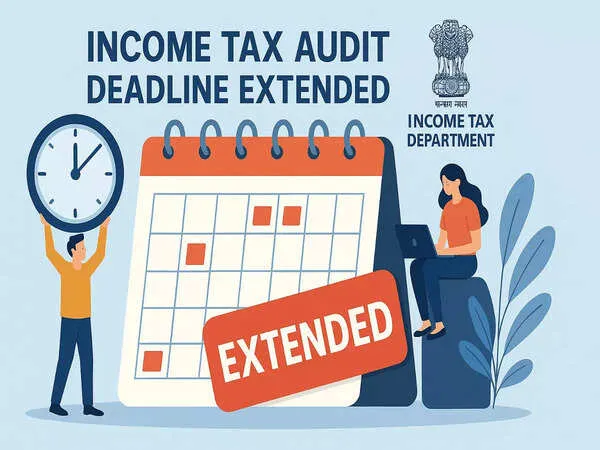CBDT Extends Tax Audit Deadline to Oct 31 2025

CBDT Grants Relief: Tax Audit Report Deadline Extended to October 31, 2025
The Central Board of Direct Taxes (CBDT) has provided much-needed relief to taxpayers by extending the tax audit report deadline for assessment year 2025-26 from September 30 to October 31, 2025. This decision addresses ongoing challenges faced by businesses and professionals in completing income tax audit report filings amid portal glitches and delayed utilities. The extension applies to assessees under clause (a) of Explanation 2 to section 139(1), ensuring smoother compliance for the financial year 2024-25.

Announced via an official post on X by the Income Tax Department, this move follows persistent requests from chartered accountants and industry bodies like the Institute of Chartered Accountants of India (ICAI). It comes after high court interventions in Rajasthan and Karnataka, highlighting the pressures of technical issues and overlapping deadlines. For many, this tax audit due date extension alleviates the rush, allowing more time to finalize audits under section 44AB.
Background on the Push for Income Tax Audit Report Deadline Extension
The call for a tax audit due date extension had been growing louder in recent weeks, driven by a confluence of factors affecting compliance efficiency. Tax professionals reported persistent glitches on the Income Tax e-filing portal, including upload failures, validation errors, and slow response times, which hampered timely submissions. Additionally, the staggered release of ITR forms and utilities-many only becoming available in July and August 2025-left little buffer for audit preparations.
Industry associations, including the Bombay Chartered Accountants' Society (BCAS) and Nagpur Chamber of Commerce, submitted formal representations urging the CBDT to push the deadline beyond September 30. Their appeals cited reduced working days due to holidays, festivals, and natural calamities like floods, which further strained resources. This extension to October 31 aligns with past precedents where similar relaxations were granted to maintain compliance quality.
Key Driver: High court orders from Rajasthan and Karnataka played a pivotal role, directly mandating the shift to October 31 for affected assessees.
Who Benefits from This Tax Audit Deadline Extension?
Primarily, this relief targets businesses and professionals required to undergo tax audits under section 44AB of the Income Tax Act. Entities with turnover exceeding Rs 1 crore (or Rs 10 crore if cash transactions are below 5%) and professionals with gross receipts over Rs 50 lakh must now submit their reports by the new date. Presumptive taxation scheme users declaring lower profits than prescribed also fall under this umbrella.
The extension ensures that the subsequent ITR filing deadline remains October 31, 2025, for audit cases, providing a cohesive timeline. Small and medium enterprises (SMEs), often hit hardest by compliance burdens, gain breathing room to reconcile accounts without rushing, potentially reducing errors in Form 3CA/3CB/3CD submissions.
- Businesses under presumptive taxation (sections 44AD/44ADA/44AE) opting out of standard profits.
- Corporate and non-corporate assessees not subject to transfer pricing audits.
- Professionals like doctors, lawyers, and engineers surpassing receipt thresholds.
Implications of the New Deadline for Taxpayers and Professionals
With the tax audit report deadline extension in place, taxpayers can now approach the end of the fiscal compliance cycle with less urgency. This adjustment not only mitigates penalty risks under section 271B-0.5% of turnover up to Rs 1.5 lakh-but also fosters better audit quality. Professionals can dedicate more time to verifying MSME payments, share buy-backs, and settlement expenditures as per updated clause requirements in Form 3CD.
For the broader ecosystem, this means fewer belated filings and reduced interest under section 234A for delayed ITRs. It also aligns with the government's push for digital compliance, allowing time to resolve discrepancies in Annual Information Statement (AIS) and Form 26AS. However, assessees in transfer pricing cases retain their October 31 deadline, maintaining parity for complex audits.
Navigating Compliance Post-Extension
Post-extension, focus shifts to accurate reporting. Taxpayers should ensure UDIN (Unique Document Identification Number) validation for audit forms to avoid rejection. The Income Tax portal's enhanced features, like offline utilities for ITR-3 and ITR-5, now support smoother uploads, but users are advised to file early to circumvent peak-hour glitches.
Chartered accountants emphasize reconciling data across AIS, TIS, and financial statements per ICAI's revised formats. This period also allows for reviewing eligibility under the new tax regime, where audits may be bypassed for certain presumptive cases.
Pro Tip: Leverage the extra month to conduct internal reviews, minimizing revisions and penalties.
Historical Context of Tax Audit Deadline Extensions in India
This isn't the first instance of a tax audit due date extension; the CBDT has a track record of responsive adjustments. In previous years, extensions were granted amid COVID-19 disruptions, shifting deadlines by months to aid recovery. For AY 2024-25, a similar one-month push addressed portal overloads, setting a precedent for the current relief.
Such measures reflect evolving compliance landscapes, balancing revenue collection with taxpayer ease. The 2025 extension, influenced by judicial directives, underscores the role of courts in advocating for equitable timelines, particularly for SMEs navigating enhanced reporting on clauses like 21(a) for settlements and 36B for buy-backs.
Looking at patterns, extensions often correlate with ITR filing surges-over 7.3 crore returns by mid-September 2025-indicating robust participation despite hurdles. This year's move to October 31 ensures alignment with global standards for audit windows, potentially boosting voluntary compliance rates.
Preparing for ITR Filing After the Tax Audit Extension
With the tax audit report deadline extension secured, attention turns to ITR preparation for audit cases. Forms like ITR-3 and ITR-5 now incorporate audit-specific schedules, requiring seamless integration of Form 3CD data. Taxpayers must verify pre-filled information in AIS to claim deductions accurately, especially under Chapter VI-A.
The extended window allows for thorough loss carry-forwards and capital gains computations, critical for businesses. Professionals should also note the late fee under section 234F-Rs 5,000 for incomes over Rs 5 lakh-applicable only post-October 31, incentivizing timely action.
Portal enhancements, including better mobile responsiveness, aid remote filings, but experts recommend backups of XML uploads. This extension ultimately promotes a more inclusive tax ecosystem, where compliance is feasible even amid disruptions.
For SMEs, the breathing room means deeper dives into MSME clause 22 reporting, ensuring payments to micro and small enterprises are documented. Larger firms can refine transfer pricing alignments, though their deadlines hold firm.
Educational outreach from ICAI continues, with webinars on updated clauses like enhanced financial statement disclosures, empowering users. As filings ramp up, monitoring CBDT notifications remains essential for any further tweaks.
This development signals a taxpayer-centric approach, potentially reducing litigation over penalties. With October 31 as the new horizon, stakeholders can prioritize accuracy over haste, fortifying India's direct tax framework.
Analysts note a projected 10-15% rise in on-time filings, attributing it to the tax audit due date extension. This could streamline processing at the Centralized Processing Center, accelerating refunds and assessments.
In essence, the CBDT's responsiveness to stakeholder feedback exemplifies adaptive governance, ensuring the AY 2025-26 cycle concludes on a positive note for all involved.
Comment / Reply From
No comments yet. Be the first to comment!







